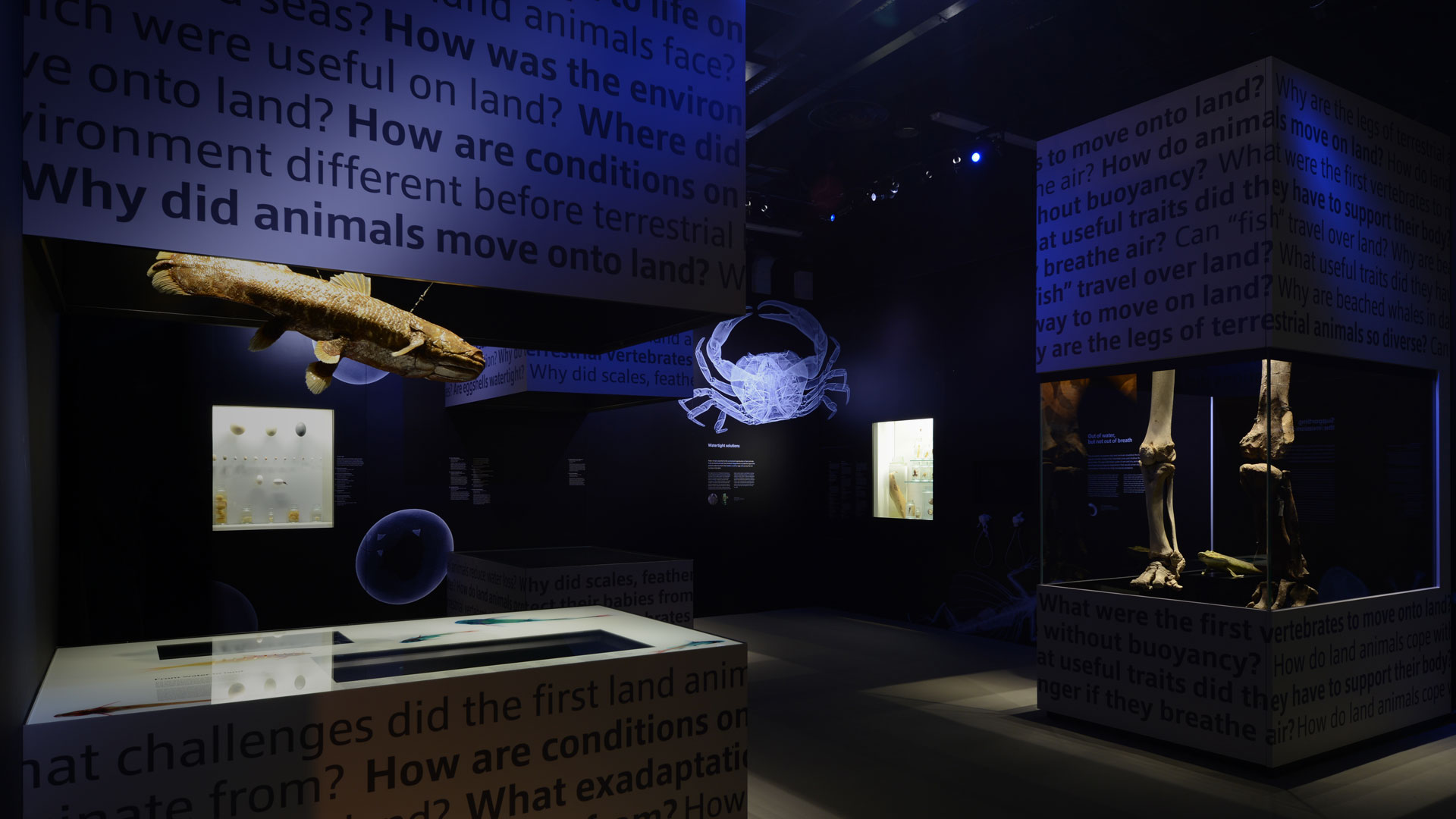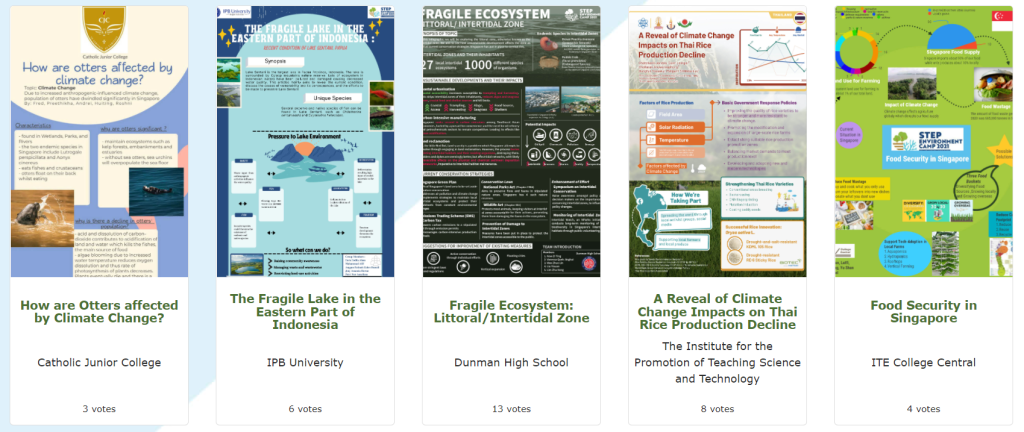Nurturing Young Green Leaders across Asia in SEC 2021
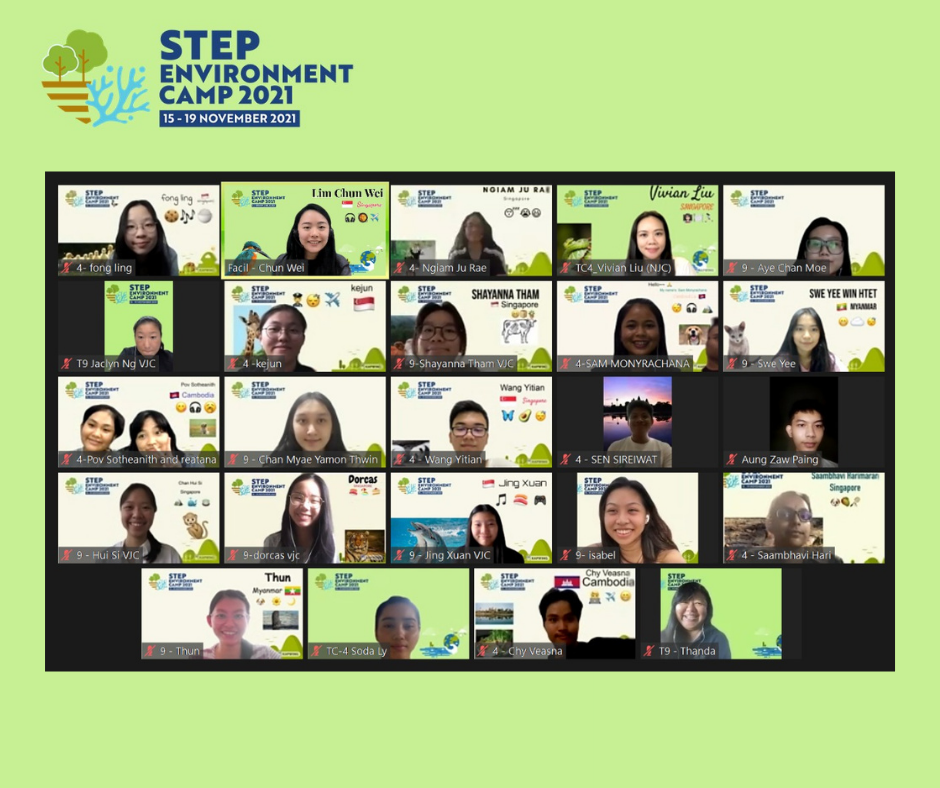
A screenshot of some of the youths who attended the camp virtually.
From 15–19 November 2021, the St. John’s Island National Marine Laboratory and the Outreach and Education team from the Lee Kong Chian Natural History Museum hosted the STEP Environment Camp (SEC) 2021 which was a five-day programme held virtually for more than 100 youths from Singapore and across Asia. The annual camp is supported by Temasek Foundation.
Based on the overarching theme of climate change and sustainability, the programme nurtures budding scientists in Asia, with a focus on environmental stewardship. This year, the theme for the camp was Biodiversity Conservation. Throughout the camp, the youths were also encouraged to form meaningful friendships and to cultivate ownership and responsible care for their environment.
The camp is held in Singapore every year but owing to the pandemic, it was held entirely online for the first time! The team had prepared an exciting virtual programme which was packed with lectures and discussions by notable speakers across institutions, a series of experiential and cooperative learning exercises, along with a poster design competition and presentation that were tasked to each group.
Lectures & Discussions by LKCNHM Staff
During the programme, some of our LKCNHM staff were involved in educating the youths on their research and in sharing with them more about the museum.
In one of the lectures, the youths got a glimpse of what it was like to explore our oceans as Dr Jose Christopher Mendoza, Lecturer & Curator of Crustaceans and Managing Editor of the Raffles Bulletin of Zoology, shared about the museum’s recent marine biodiversity expeditions conducted in the Southeast Asian region. He highlighted how such expeditions are important in contributing towards natural history repositories, biodiversity research and conservation management. Even till today, our oceans are so vast that many of their mysteries have yet to be discovered and researched on.
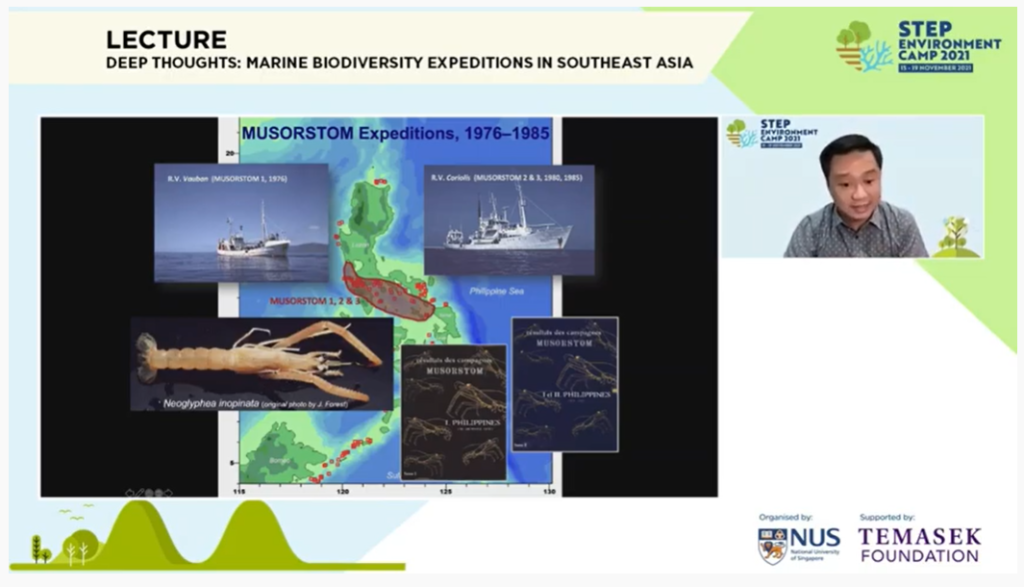
Dr Mendoza describing the significance of the Musorstom Expeditions (1976–1985) in the waters of the Philippines, where scientists collected specimens of the Albatross lobster which belongs to a group known as the glypheoid lobsters that was previously believed to be extinct until 1975.
Using technology to bridge the physical distance, our Senior Education Officer, Ms Jharyathri Thiagarajah, brought the youths on a virtual visit to the museum where she enthralled them with exclusive behind-the-scenes on one of the museum’s biggest stories ever told—the discovery of a female sperm whale carcass which was found floating off Singapore’s waters in 2016. Many of the youths were awestruck by the story, which resulted in some expressing interest to volunteer at the museum!
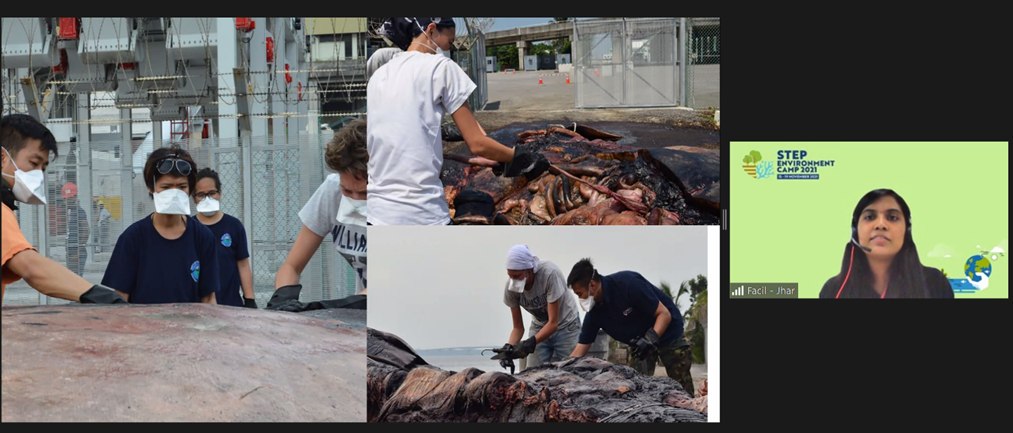
Ms Jharyathri Thiagarajah sharing about the team’s dissecting process of the sperm whale which took about 71 days!
In keeping in line with the overarching theme of climate change and sustainability, the camp ended its series of lectures with a panel discussion on environmental stewardship where local activists, Mr Sankar Ananthanarayanan (President and Co-founder, Herpetological Society of Singapore), Ms Shu Qin Sam (Co-founder, Our Singapore Reefs), Mr Karl Png (Executive Director, Singapore Youth Voices for Biodiversity and Singapore Chapter Coordinator, Global Youth Biodiversity Network) and Ms Weiting Xu (Organising Committee, NUS Toddycats & Urban Wildlife Working Group) were invited to discuss about their initiatives and their journeys in environmental conservation. The discussion was moderated by our museum officer Mr Marcus Chua, Curator of Mammal & Bird Collections.
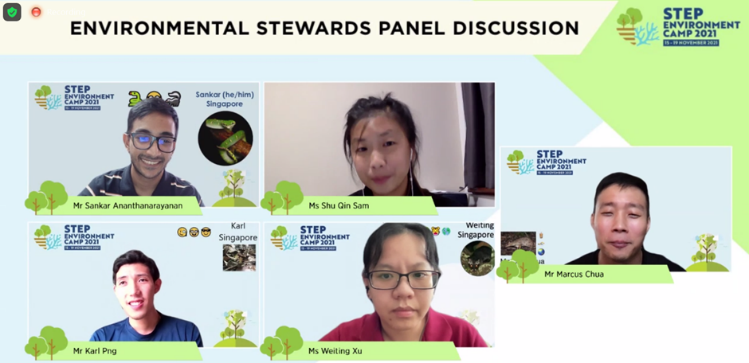
The panellists discussing how an individual can do their part in preserving our natural environment amidst climate change and societal challenges.
Designing Posters & Presentations for Science Communication
The camp concluded with awards presented for the best poster design and presentation which the youths were tasked to do before the camp. Under the theme of biodiversity conservation, each group was assigned to come up with a poster and presentation that analysed ecologically important species and habitats in their respective countries, the challenges faced and to also think of possible solutions.
To learn more about SEC 2021, visit their website here.
Check out the SEC 2021 Facebook page to get a glimpse over the course of the programme.

